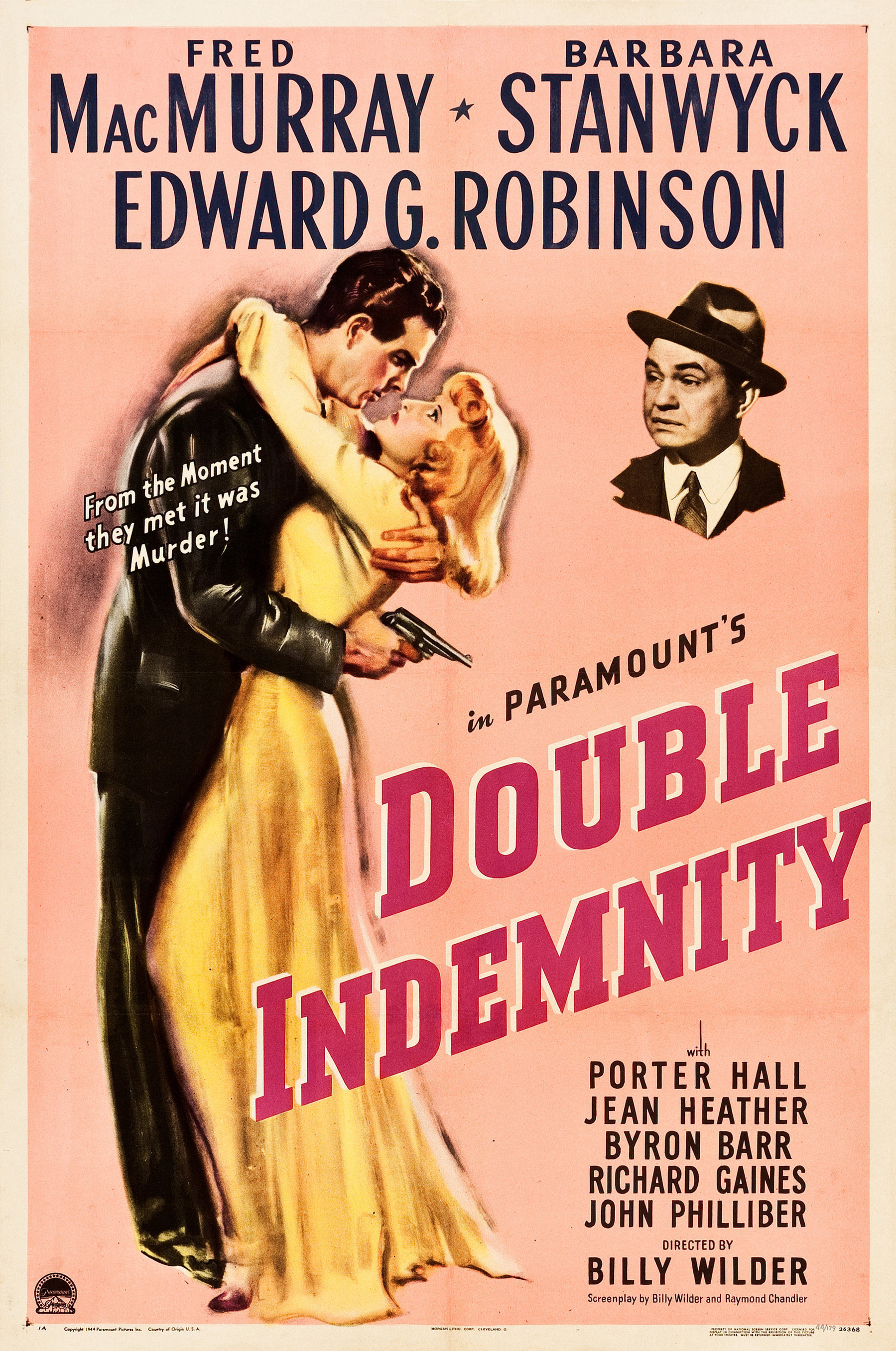I have avoided nearly all noir movies until now because I like stories to have good guys, and my preconception about noir is that these films entirely feature variations on bad people along with the occasional victim.
I have seen “Double Indemnity” now and I see I was wrong. Not about the bad people—although there are one or two good people in this movie, they are not the main characters. However, “Double Indemnity” is not the least bit off-putting. It was compelling.
Fred MacMurray as the main character, Walter Neff (“two Fs, like in Philadelphia”) is a surprise. I knew him from the 1960s as the father in a TV show called “My Three Sons.” It was a wholesome family sitcom, and MacMurray played a wholesome sitcom Dad, which means he was an amiable eunuch. I knew he’d played other, darker roles when he was younger, and had seen a couple of them, but he blows the doors off Walter Neff. In one of the first scenes of the movie, where he first encounters Barbara Stanwyck as Phyllis Dietrichson, I’m thinking, “Wait, Fred MacMurray is …. sexy? … in this movie?”
And so he is. He is handsome, with a mellifluous baritone voice. He wears tailored suits. He leans nonchalantly against a doorjamb. He moves confidently. He talks in rapid-fire witty banter. He wants Phyllis and he takes her.
And yet it’s also apparent from the beginning that it’s all on the surface. He’s not as sexy, smart, or confident as he thinks he is. And Phyllis, not him, is the one in control of that relationship.
Lots of smoking in this movie. It’s not just that all the characters smoke. Smoking is a big deal. It’s like cigarettes and matches are one of the main characters.
Ebert loved the movie and he said Walter and Phyllis’s motivation was the central mystery. Walter doesn’t seem to really care all that much about the money or her, and vice-versa. I’m not sure I agree with Ebert here—but he has a point. As the movie got started, I was thinking, “Wait, he just met her and now he’s in love with her? Not just in love—obsessed?” And, later, “He’s been with her twice and now he’s willing to murder for her?”
And I wondered why Drake, the character played by Edward G. Robinson, was so motivated to root out fraud. It’s not his money—why does he care so much?
Thinking about it, it seems to me that all these characters are playing a game. People become obsessed with games, particularly when the games involve sex, money and death.
Also, Walter Neff seems like he’s alone. He has no family, no friends, not even a cohort of fellow salesbros. He loves his co-worker, Drake, like a brother, and that is the extent of his human connection. So, yeah, maybe attention from Phyllis Dietrichson was like a sip of water to a man dying of thirst, and he was immediately willing to do anything to get more.
“Double Indemnity” is possibly the least dated old movie I’ve ever seen. All the characters and their situations and motivations seem completely up-to-date. This is a movie that could easily be remade in 2023. But I hope it isn’t. It’s perfect as it is.
The only dated bits are the smoking. And the Dictafone. Walter Neff dictating his confession is part of what makes the movie still fresh, but the Dictafone itself is a weird gadget.
What does Lola see in her boyfriend? He seems to have no redeeming qualities whatsoever.
Now I want to see ”The Apartment” again. “Shut up and deal.” And also “The Postman1 Always Rings Twice,” which I guess along with “Double Indemnity” are the two pinnacles of noir movies.

-
When I initially published this post, I wrote the title as “The Milkman Always Rings Twice.” I don’t know whether that movie exists, but I would like to see it. It would be a steamy romance about an amorous milkman and a femme fatale who’s lactose intolerant. ↩︎